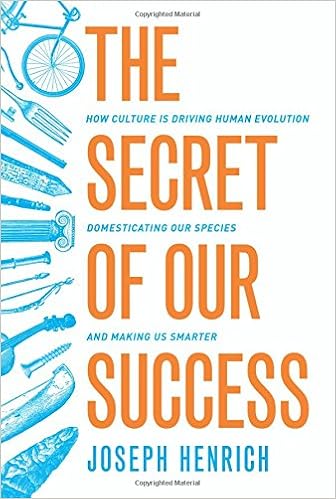There is similar rejoicing in heaven over anthropologists who embrace gene-culture coevolution. The late Henry Harpending was the paradigmatic example while Joseph Henrich, by contrast, has only made it part of the way.
That being said, the stellar reviews of "The Secret of our Success" correctly identify the good parts of Henrich's new book. We are cultural beings to the core and without the wisdom of our societies our big brains and high IQs are as nothing. Henrich's paradigmatic example is well described in this review from Joe Brewer:
"HMS Erebus and HMS Terror .. left port in June 1845 from the British Isles under the command of Sir John Franklin in search of a Northwest Passage that could energize trade by connecting western Europe to East Asia. They were outfitted with two field tested ice-breaker vessels equipped with state-of-the-art steam engines, retractable screw propellers, and detachable rudders. They also had five years of provisions and were prepared to deal with the harsh winter in the Arctic Ocean. And yet, even with all of these things going for them, the crew was forced to abandon ship in their second year and move onto King Williams Island—where they became fragmented into small groups and forced to the point of cannibalism before all dying eventually.Henrich has many similar anecdotes about the adaptations which enabled humans - uniquely amongst primates - to develop, share and propagate a collective culture, something we understand in business when we say that 'good processes get excellent performance from average people'.
"The crew was in an area where Inuits had lived for thousands of years, some of whom came into contact with the shipwrecked crew during the time they were stranded there. It was a harsh environment where the locals had amassed a repertoire of knowledge about how to build kayaks and igloos, hunt sea animals for food, and scavenge for plants during the brief warm spells of summer. Unfortunately for the British explorers, this body of cultural knowledge was not available to them and they suffered the consequences."
Still, there are things not to like. The book is too long: after a promising start it becomes a long-winded sprawl, obscuring the big picture.
Henrich has not internalised modern thinking in genetics, particularly population genetics; his underlying mental framework is still at heart blank-slatism. He doesn't understand the genetics of racial differentiation (cf Greg Cochran's post "Such a thing"); he thinks humankind is still evolving into more effective cultural animals (where's the evidence for selection for that?); and many of his assertions - the reasons for the menopause, for example - are far less settled than he suggests.
The book, despite its flaws, is well worth reading as an antidote to Dawkins-style evolutionary individualism. Ironically it's by far the best account of what a theory of memes would actually look like. But its approach to genetics makes one wince.

No comments:
Post a Comment
Comments are moderated. Keep it polite and no gratuitous links to your business website - we're not a billboard here.